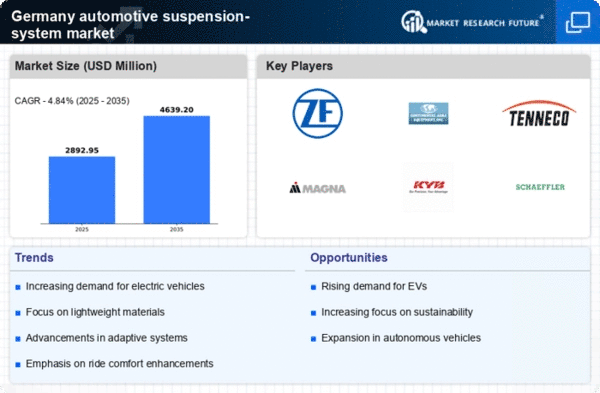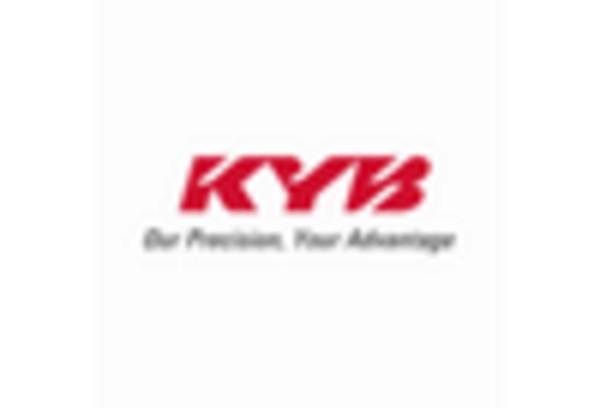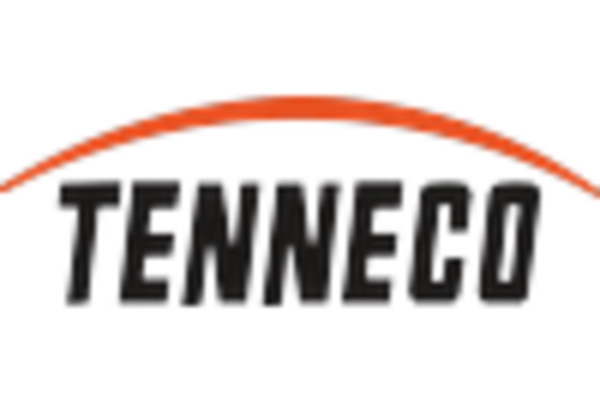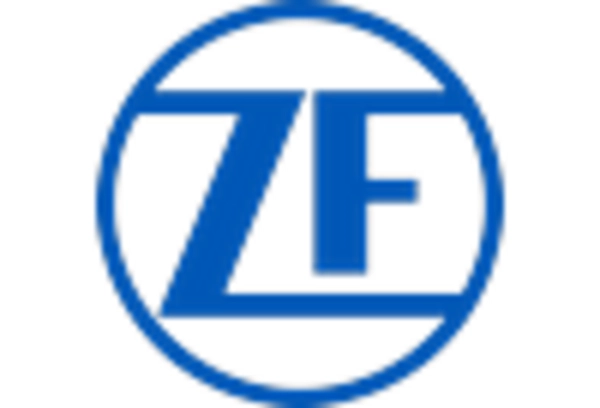Rising Popularity of Performance Vehicles
The automotive suspension-system market in Germany is experiencing a surge in interest due to the rising popularity of performance vehicles. Enthusiasts are increasingly seeking vehicles that offer superior handling and responsiveness, which necessitates advanced suspension systems. This trend is reflected in the growing sales of sports cars and high-performance models, which have seen an increase of around 20% in the last year. Manufacturers are responding by developing specialized suspension solutions that cater to this segment, such as adjustable coilovers and performance-oriented air suspension systems. This focus on performance not only enhances driving dynamics but also contributes to the overall appeal of vehicles in the competitive automotive landscape. Consequently, the automotive suspension-system market is likely to evolve further as manufacturers continue to innovate in response to consumer demands for high-performance vehicles.
Growing Demand for Enhanced Vehicle Comfort
The automotive suspension-system market in Germany experiences a notable increase in demand for enhanced vehicle comfort. Consumers are increasingly prioritizing ride quality, leading manufacturers to innovate and develop advanced suspension systems. This trend is particularly evident in the luxury vehicle segment, where high-end brands are investing heavily in sophisticated suspension technologies. According to recent data, the market for premium vehicles in Germany has expanded by approximately 15% over the past year, driving the need for superior suspension solutions. As a result, companies are focusing on integrating features that improve comfort, such as adaptive dampers and air suspension systems, which are becoming standard in many new models. This growing emphasis on comfort is likely to continue shaping the automotive suspension-system market, as manufacturers strive to meet consumer expectations and enhance overall driving experiences.
Regulatory Push for Improved Safety Standards
In Germany, the automotive suspension-system market is significantly influenced by stringent safety regulations. The government has implemented various safety standards aimed at reducing road accidents and enhancing vehicle stability. These regulations compel manufacturers to invest in advanced suspension technologies that improve handling and control. For instance, the introduction of electronic stability control systems has become a requirement for new vehicles, which directly impacts the design and functionality of suspension systems. As a result, the market is witnessing a shift towards systems that not only provide comfort but also ensure safety. The compliance with these regulations is expected to drive innovation within the automotive suspension-system market, as companies seek to develop solutions that meet or exceed these safety benchmarks.
Technological Advancements in Suspension Systems
Technological advancements play a crucial role in shaping the automotive suspension-system market in Germany. Innovations such as active suspension systems and electronically controlled dampers are becoming increasingly prevalent, offering improved ride quality and handling. These technologies allow for real-time adjustments based on driving conditions, enhancing both comfort and performance. The integration of sensors and software in suspension systems is expected to grow, with projections indicating a potential market expansion of 10% annually over the next five years. As manufacturers invest in research and development, the automotive suspension-system market is likely to witness a wave of new products that leverage these advancements, ultimately transforming the driving experience for consumers.
Shift Towards Sustainable Manufacturing Practices
The automotive suspension-system market in Germany is increasingly influenced by a shift towards sustainable manufacturing practices. As environmental concerns gain prominence, manufacturers are exploring eco-friendly materials and production methods. This trend is evident in the growing use of recycled materials in suspension components, which not only reduces waste but also lowers production costs. Additionally, companies are investing in energy-efficient manufacturing processes to minimize their carbon footprint. According to industry reports, the adoption of sustainable practices could lead to a reduction in production costs by up to 15%, making it an attractive option for manufacturers. This focus on sustainability is likely to reshape the automotive suspension-system market, as consumers become more conscious of the environmental impact of their vehicle choices.
















